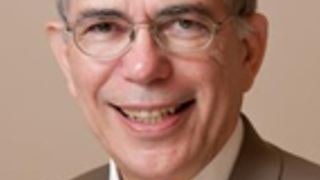American higher education is called upon to serve a variety of purposes: advancement of knowledge, expansion of cultural appreciation, extending understanding of societal benefits and obligations, and preparing a diversity of students with the skills they need for a successful and rewarding life. These missions are important to the well-being of our people and the strength of our country. Recently, it has become apparent that higher education must give increased attention to skill development and educational attainment.
 Dr. George R. Boggs
Dr. George R. Boggs
Accompanying the skills gap is a serious employment equity issue. Research done by the National Center for Inquiry & Improvement (NCI&I) revealed significant racial inequality in the workforce. Black and Latina/o/x workers are overwhelmingly employed in the lowest-paying jobs and significantly underrepresented in the highest-paying professions. The findings are consistent across all regions studied by NCI&I – across red states and blue states, geographic regions, and urban/suburban/rural areas (Johnstone, 2023).
Addressing the challenges of a growing skills gap and inequity in the workforce will require planning, vision, and foresight. Strategies to be considered include developing or expanding dual enrollment, apprenticeships, credit for prior learning, transfer, and community college baccalaureates.
Dual Enrollment
Establishing and expanding dual enrollment programs is a place to begin. Dual enrollment allows high school students to enroll in college courses and earn credits. High school students who experience college-level classes are more likely to continue with and complete college. However, students of color and students from low-income backgrounds are not participating at equitable levels. Dual enrollment agreements should include strategies for increasing the inclusivity of dual enrollment programs.
The California community colleges focus on equitable access by calling for all ninth-graders to take at least a one-credit college course in which they explore potential careers and develop a preliminary college education plan that includes a minimum of 12 college credits during high school.
Apprenticeships toward a college credential
Registered apprenticeships have a track record of preparing students with employable skills, and they can lead to a college credential. The programs offer access to hundreds of occupations in high-growth and emerging industries. The U.S. Department of Labor recently initiated a program to make it more seamless for full-time high school and community college students to enroll in the apprenticeship system (Moody, K., 2023).
Credit toward a college credential for prior learning
 Dr. Sonya Christian
Dr. Sonya Christian
Baccalaureate attainment through transfer
One of the best ways to increase equitable baccalaureate attainment is by increasing the number of transfers from community colleges to public and independent universities. Policymakers and higher education leaders have been working to improve the transfer process and to remove barriers for students. Phi Theta Kappa, the International Honor Society for community college students, hosts a transfer honor role for universities that have established policies and procedures to assist community college students in the transfer process (Phi Theta Kappa, n.d.).
Baccalaureate attainment through community colleges
Twenty-four states have authorized community colleges to offer baccalaureates, mostly in applied subjects not offered by universities or in areas in which there is an unfilled need.
A 2022 evaluation of the California program by the UC Davis Wheelhouse reported several significant benefits. The two-year graduation rate across all 15 community college programs was 67% with three-year graduation rates reaching 78%. (Hoang, H., Vo, D., & Rios-Aguilar, C., 2022).
The program also provided important access for older adults. Nearly half of the students in the baccalaureate programs were between 25 and 34 years old. Across all graduating classes, 56%of the students reported that they would not have pursued a bachelor’s degree if it had not been offered at their community college (Hoang, H., Vo, D., & Rios-Aguilar, C., 2022).
Conclusion
Addressing the challenges of a growing skills gap and inequity in the workforce requires the immediate attention of American higher education. Solutions can include increasing apprenticeship training, noncredit classes, certificate programs, transfer programs, and community college baccalaureates. Expansion of dual enrollment programs and credit for prior learning as well as enhanced student support services along with equity in funding support will make it possible to meet the challenges ahead.
Dr. George R. Boggs is president & CEO Emeritus of the American Association of Community Colleges, and superintendent/President Emeritus of Palomar College.
Dr. Sonya Christian serves as chancellor of the California Community Colleges.
The Roueche Center Forum is co-edited by Drs. John E. Roueche and Margaretta B. Mathis of the John E. Roueche Center for Community College Leadership, Department of Educational Leadership, College of Education, Kansas State University.
References
Carnevale, A., Smith, N., Van Der Werf, M. & Quinn, M. (2023). After Everything: Projections of Jobs, Education, and Training Requirements through 2031. Georgetown University, Center on Education & the Workforce.
Council for Adult and Experiential Learning( n.d.). Accessible from https://www.cael.org/lp/cpl-pla.
Hoang, H., Vo, D., & Rios-Aguilar, C. (2022). Benefits and Opportunities: California’s Community College Baccalaureate Programs. UC Davis Wheelhouse: The Center for Community College Leadership and Research.
Johnstone, R. (2023). “Grounding Our Inquiry and Change Work in Equitable Post-Graduation Success.” Roueche Center Forum. Diverse Issues in Higher Education.
Moody, K. (2023). “DOL rule would promote apprenticeships, tighten program labor standards.” Higher Ed Dive.
Phi Theta Kappa (n.d.). Transfer Honor Role. Accessible from https://www.ptk.org/recruiters/university-transfer-recruiters/transfer-honor-roll/.





















